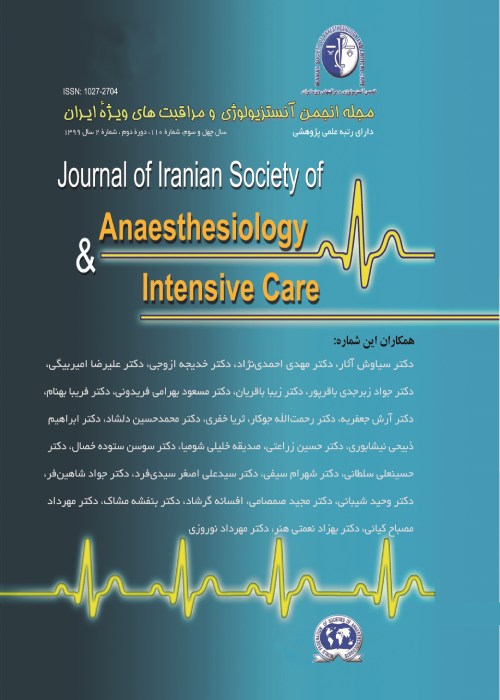APACHE II and its physiologic parameters as predictors of outcomes in surgical ICUs
Author(s):
Abstract:
Introduction
APACHE II is a general severity of disease classification system in ICUs. Few studies have been conducted on the physiologic parameters of this system separately.The goal of the current study was to assess APACHE II and its physiologic parameters in prediction of the outcomes (died, survivor) in surgical ICU. Materials And Methods
This is an observational and prospective study of 150 consecutive patients admitted in surgical ICU during six months period. Demographic information recorded in a check list and information about severity of disease calculated based on APACHE II scoring system in the first admission 24 hours. Student T- test and chi square were used for statistical analysis (95% confidence interval).Results
Data analyses showed significant statistical differences between outcomes and APACHE II (p= 0/03), the serum creatinine levels (p< 0/001), urea (p=0/03), white blood cell levels (p=0/028) and acute physiology score (p=0/008).Conclusions
APACHE II is a good predictor of outcome in surgical ICU; also the Cr, urea, WBC levels and acute physiology score are good parameters as indicators of illness severity.Keywords:
APACHE II , surgical ICU , creatinine , urea , WBC , acute physiology score
Language:
Persian
Published:
Iranian Journal Of Anaesthesiology and Critical Care, Volume:34 Issue: 4, 2013
Page:
38
magiran.com/p1105183
دانلود و مطالعه متن این مقاله با یکی از روشهای زیر امکان پذیر است:
اشتراک شخصی
با عضویت و پرداخت آنلاین حق اشتراک یکساله به مبلغ 1,390,000ريال میتوانید 70 عنوان مطلب دانلود کنید!
اشتراک سازمانی
به کتابخانه دانشگاه یا محل کار خود پیشنهاد کنید تا اشتراک سازمانی این پایگاه را برای دسترسی نامحدود همه کاربران به متن مطالب تهیه نمایند!
توجه!
- حق عضویت دریافتی صرف حمایت از نشریات عضو و نگهداری، تکمیل و توسعه مگیران میشود.
- پرداخت حق اشتراک و دانلود مقالات اجازه بازنشر آن در سایر رسانههای چاپی و دیجیتال را به کاربر نمیدهد.
In order to view content subscription is required
Personal subscription
Subscribe magiran.com for 70 € euros via PayPal and download 70 articles during a year.
Organization subscription
Please contact us to subscribe your university or library for unlimited access!


